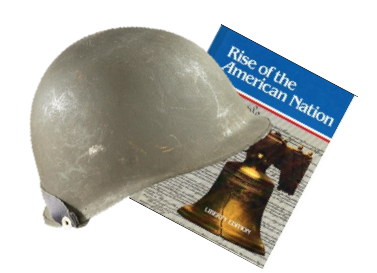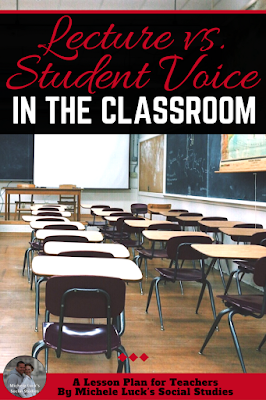
According to a report released by Duke University, the lecture teaching strategy “is not highly effective to help students accomplish student learning outcomes.” Those of us who have taught with multiple intelligences in mind can also verify that so many of our students in today’s classrooms will simply turn off their attention in those lecture-based classrooms. They are lost from the moment the monotone begins. More importantly, ALL students can learn at higher levels with varied instruction. Even AP courses can be taught MORE effectively through non-lecture based methods. I’ve done it!
What are the methods?
Student-centered activities can include simple strategies such as Pair & Share Responses or Group Presentations, or they may involve well developed activities like a Classroom Jigsaw or Research Project. These methods can be found all over the internet (A great list is available at Facing History and Ourselves with clear directions), but the key to remember in your own classroom is to keep changing things up.
Rules for Unit Implementation:
- Introduce the unit with an experiential exercise or through an attention-getting writing prompt.
- Utilize current events and thought provoking articles or reports, allowing students to read in grouped formations and to report out to the class. OPINION is always welcome!
- Bring in unit key content through Walking Tours, Archeology Digs, Scavenger Hunts or other out-of-the seat student activity.
- Further discuss most significant unit points through discussion or comparison activities, including role playing act-it-outs or Quiet Big Paper activities.
- Use visuals, music, video, quotes, journals, and other primary sources with analysis skills practice to review specific unit topis.
- Play classroom games to reinforce core content of the unit and to check student understanding. See my “Have You Found Your Game? Blog Post for ideas!
- Hold an INTERACTIVE Lecture to wrap up each unit, encouraging student participation throughout lesson.
- Take time to allow students to prep for any unit assessments through game creation or study guide completion (usually in pairs or small groups).
- Include a question session where students can ask the questions for unit clarification.
- Assess students through a comprehensive test that offers a variety of prompts, including writing assignments with significant of the unit stressed. (Offer options for prompts and allow students to include opinion and encourage the addition of multiple perspectives in responses.)
And one last thing to remember… while you are the expert in your classroom, each and every student has something to contribute. Allow them that opportunity, and you never know which one may become an expert themselves in a few years!
Need to find great resources to help you get started? Visit My TpT Store!

Happy Teaching!